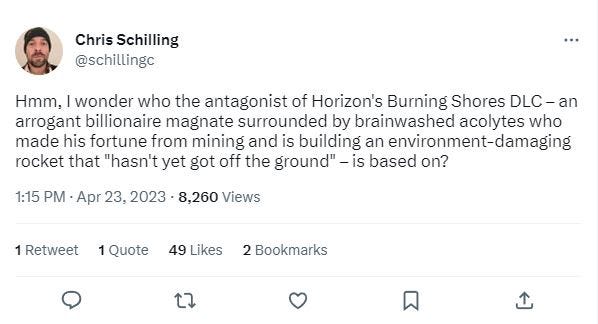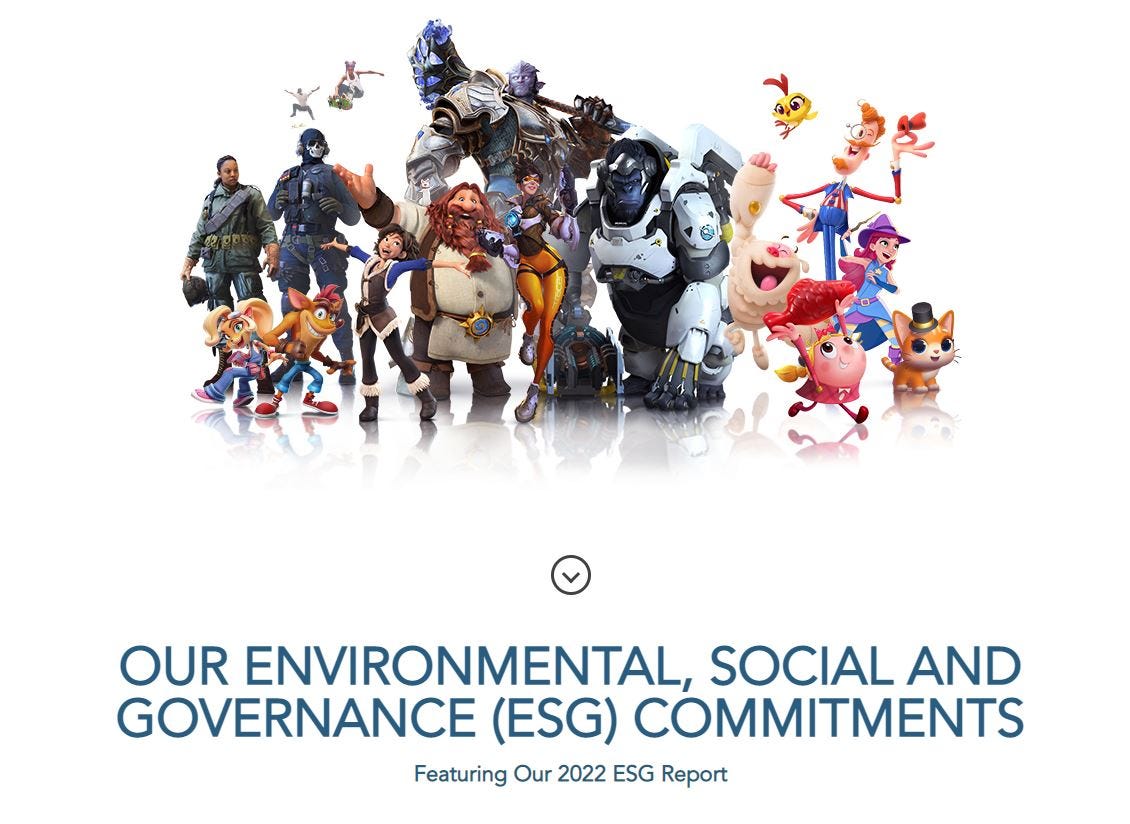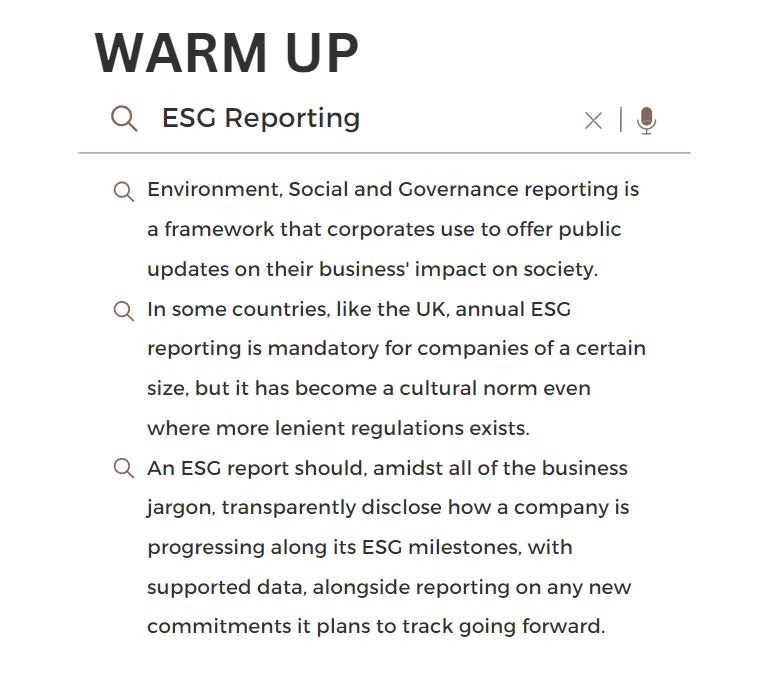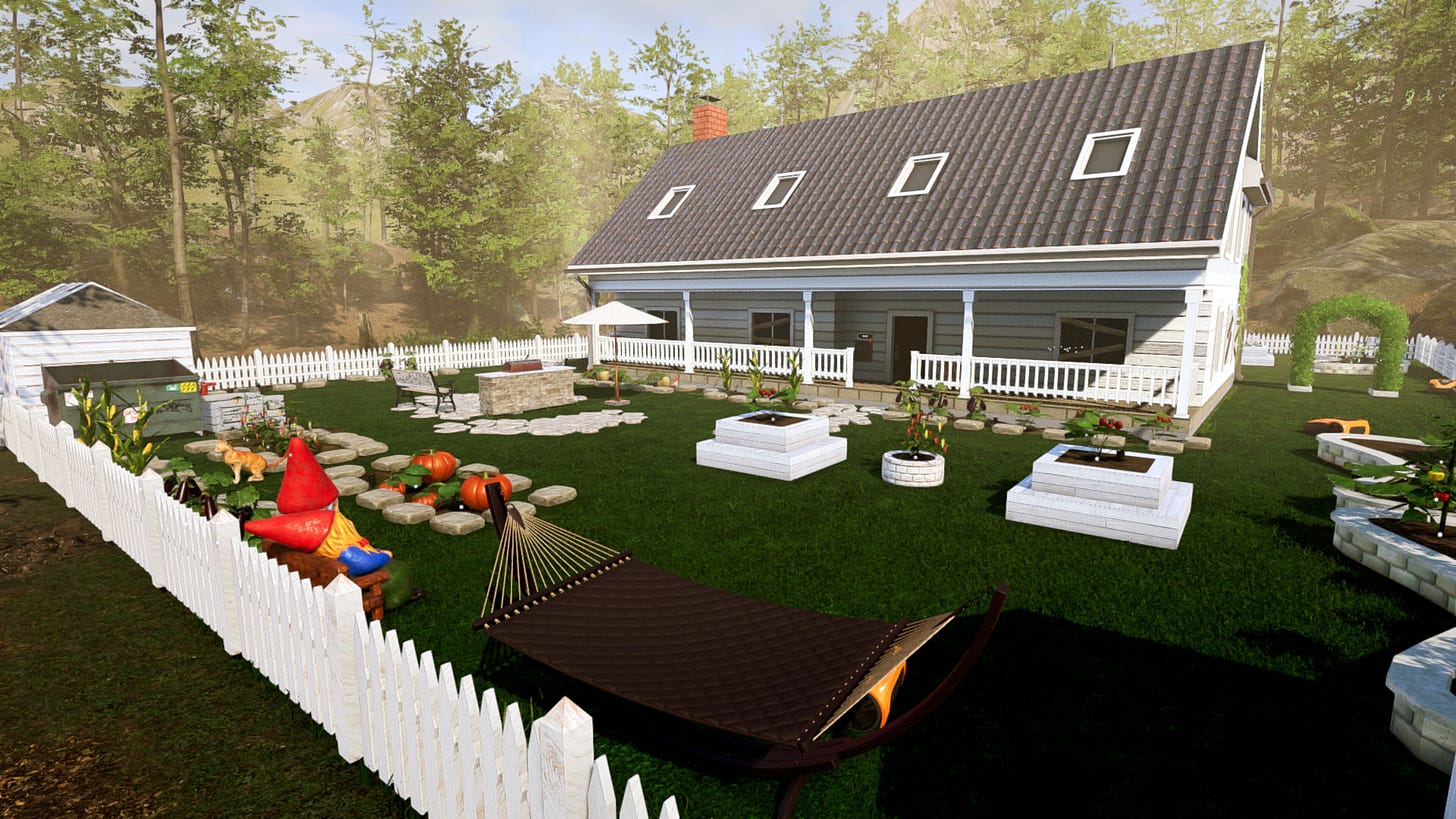Dispelling an iffy musk in the Burning Shores
Your latest digest of video game and climate change news from the past two weeks.
Welcome to the latest edition of Play Anthropocene!
Today is Tuesday, May 16, and we’re covering the latest developments in the world of video games and climate change.
Given that Play Anthropocene is coming back from a short break, I’ll be discussing some “new” items that go back as far as April(!), but we’ll be back to our two week scheduling from here on out. Happy reading!
Sustainability report season has arrived!
We’re a little ways into the new financial year, and you know what that means? Large, money-hungry corporations are beginning to release their annual Environmental, Social, and Governance reports! Woohoo! Don’t all rush for your reading spectacles at once!
In all seriousness, while these reports do offer interesting morsels of information regarding how a company is progressing on its environmental commitments, alongside any new ones it might be making for the year ahead, the long-winded documents in which such information is often sandwiched tend to be drier than future predictions for the Mojave Desert.
Thankfully, I’ve scanned the latest annual ESG reports from Microsoft and Activision Blizzard so that you don’t have to, extrapolating just a couple of interesting data points on how the two companies are getting along in their respective journeys to net zero (or, in Microsoft’s case, to full carbon negativity).
Here’s the rub: Microsoft reduced its total greenhouse gas (GHG) emissions footprint by just 0.5% last year, while Activision’s equivalent actually increased by that same amount. Not a great start, then, but a closer inspection reveals some important context for those numbers.
Activision, for example, claims that the reason why its GHGs have increased is due to the fact that its emissions measurement and reporting tools have become more accurate and efficient in the last year, and so its latest data now includes emissions that would have previously gone unreported in previous updates. Given that, the 0.5% increase actually suggests that the company’s emissions may well have decreased since last year, although there’s no real way of verifying whether that’s true or not.
As for Microsoft, the company states that its overall business grew by 18% in that same year, implying that its meagre 0.5% emissions reduction rate isn’t so bad by comparison. In an accompanying Linkedin post, Microsoft’s chief sustainability officer Melanie Nakagawa also explained that “96% of these emissions come from a global energy grid and supply chain that are the most difficult for us to control through our activities alone", pointing specifically to “Xbox consoles powered by different electricity grids” as an example.
In any case, this latest update doesn’t bode well for Microsoft’s long term strategy of reaching carbon negativity by 2030, which is only seven more ESG reports away from where we stand now. Should the Activision Blizzard merger actually go through, Microsoft’s business could be about to get even bigger, too, alongside its carbon footprint.
This leads us to an important point of tension between the global decarbonisation effort and late-stage capitalism, in that that traditional models of economic growth are simply incompatible with the kind of emissions drawdown that is required at this stage in our history. Microsoft seems to be finding this out the hard way; we can only hope that this latest disappointment for the company’s reporting figures can start to shift some of that avaricious growth mindset which continues to dominate the culture of its executive boardrooms.
Horizon Forbidden West takes a big-budget swipe at the billionaires behind the new space race
We’ve talked about the environmental perils and pitfalls of the Colonize Mars mentality in the past here at Play Anthropocene before, so you can imagine my delight to see the worldview very much vilified, and subsequently denigrated, in Horizon Forbidden West’s new expansion, Burning Shores, last month.
Without spoiling too much from Guerrilla Games’ latest chapter in its ongoing sci-fi saga, the main antagonist of Burning Shores is a man named Walter Londra; a mining business magnate high on the fumes of his own, self-propagated cult of personality. Aloy soon learns of Londra’s sinister plan to escape Earth via a spaceship launch that would poison the entire region of the Burning Shores, killing everyone - machine or human - caught within its ecologically devastating blast radius.
Burning Shores thus goes to great lengths to contrast Aloy’s heroic efforts - and her continued belief in fighting for the future of our planet - against the self-centred insouciance of Londra, who is quite happy to leave Earth in ruin so long as he’s no longer living on it. Now, is that story, and its clear allusions to a certain billionaire narcissist, all a bit on the nose? Perhaps. Is it still incredibly cathartic to defeat Londra before he can get away with his reckless vanity project? Absolutely.

More than anything, it’s nice to see a game with a following as large and as mainstream as Horizon: Forbidden West’s putting this kind of subject matter at the front and centre of its golden path. Back when it first launched, PlayStation heavily marketed Forbidden West as a climate parable of sorts, but it always felt like a a bit of reach when a lot of the game’s environmental subtext was too often lost in the sci-fi mumbo gumbo that the series is known for overly indulging in.
With Burning Shores, Guerrilla Games demonstrates both more nuance and directness in drawing the parallel’s between Aloy’s planetary crisis and our own, pulling few punches in condemning the types of people who use their undeserved platform, power, and privilege to undermine the health and sanctity of Earth. Here’s hoping the inevitable sequel continues in that same direction of travel.
Garden Simulator’s sanitised backyards celebrate the wrong kind of reclamation fantasy
The latest iteration of Garden Simulator from Produktivkeller Studios hit Xbox consoles last week, and while it’s already been well-received since its release on PC back in 2022, it’s worth considering how some of the value systems ingrained within the game’s design are reflective of a landscaping philosophy that seeks to suffocate the environment, rather than let it thrive.
A key feature in Garden Simulator, for example, rewards players for keeping their lawns regularly mowed and orderly; hardly a controversial ideal, to be fair, given that suburban culture has long placed high value on a clean, crisp, and fastidiously kempt lawn (which also tend to glow with an unnaturally green radiance as a result of being perennially dumped with harmful chemical fertilizers).
As geometrically satisfying as these green spaces may look, however, they might as well be considered a barren wasteland for wildlife; sterile monocultures unable to germinate wildflowers crucial for pollinators like bees and butterflies, and devoid of tall grass which can provide shelter for beetles, worms, and even small animals like dormice or hedgehogs.
The growing popularity of “No Mow May” is part of a wider pushback against this overly tidied lawn culture, then, since just one month of keeping the blades away can bring an abundance of wildlife back to the garden. Yet Garden Simulator seems to be holding on the antiquated gardening ideals of the past, insisting that players keep their grass looking one AstroTurf roll short of an image you might find on the Sh*tLawns Twitter account.
In doing so, the game perpetuates the idea that nature is something that needs to be tamed or subdued, and that gardening is less of an exercise in working with nature, and more of a constant war against the chaos it might bring to the backyard. But, with the biodiversity crisis leading to crumbling ecosystems and species extinctions en masse, that natural, flourishing, wildlife-rich chaos is exactly what our planet needs, and gardeners have an opportunity to play an important role in helping to restore it.
I’m not trying to rag on Garden Simulator; in fact, it gets a lot of stuff right, particularly in giving players the options to grow their own food - another environmentally beneficial practice that can help to ease the burden on our already strained global food chains. But it would be nice to see a gardening simulation game that promotes some more sustainable gardening practices, from no-dig alternatives and pollinator-heavy floriculture, to rewilding opportunities like bug hotels, ponds, and natural pesticide defences.
Instead, Garden Simulator is a little too keen to push the human imprint into its virtual green spaces, leaving little room for players to consider what might just happen if they let nature do some of the work for them.
Enjoyed this newsletter? Subscribe or spread the word about Play Anthropocene to others who might be interested, and if you have any feedback or questions, feel free to get in touch with me at PlayAnthropocene@gmail.com
Find me on Twitter: @alexavard95







